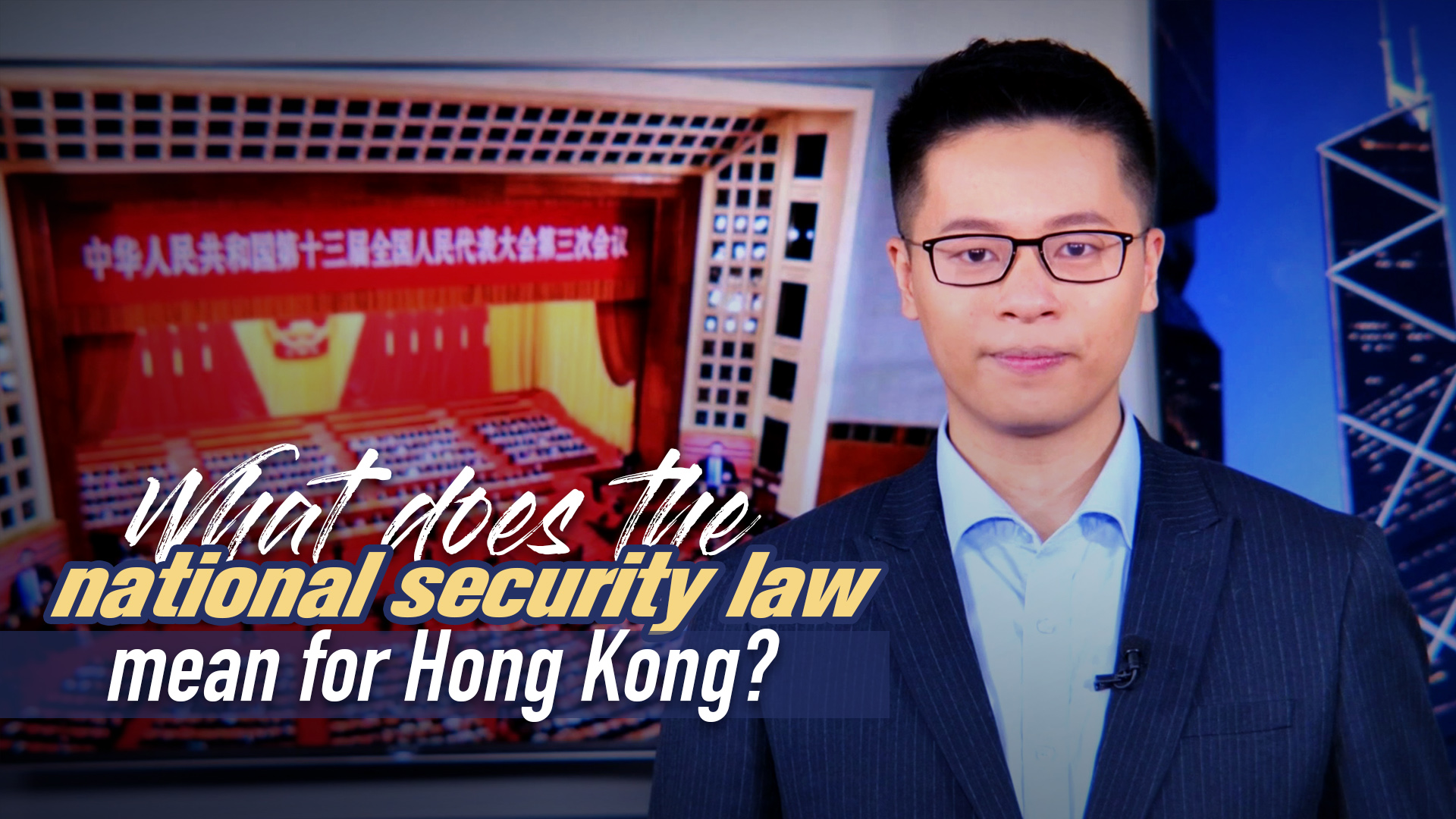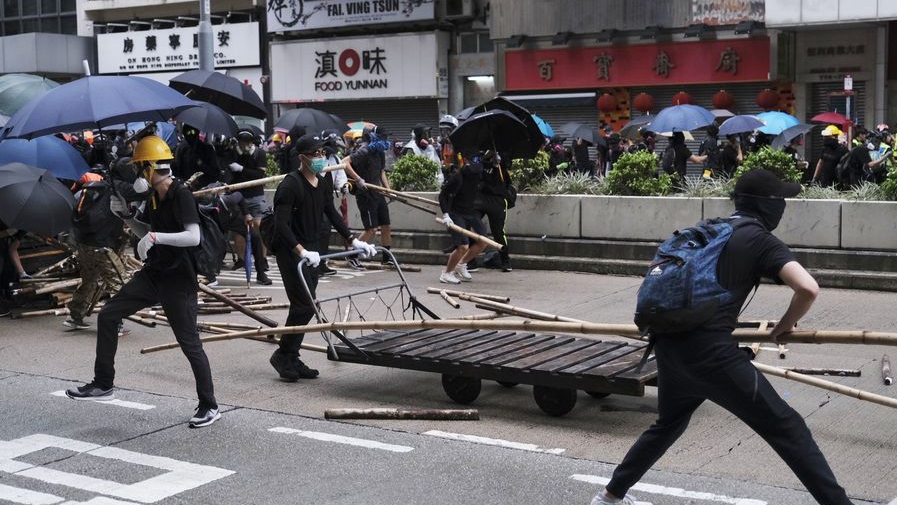04:59

Hong Kong is in the spotlight again after the central government enacts a national security law for the special administrative region (SAR). But what exactly is this new law? And, how will it protect the city of Hong Kong and China as a whole?
To understand why China is introducing the law right now, we have to put it into context. Violent protests and riots had been a regular scene in Asia's financial hub since June 2019. For some people living there, it was a nightmare.
"If you are peacefully protesting, that is fine, but they are now using all sorts of violence. That is not acceptable," says one local resident.
Back then, what triggered the chaos was a proposed law, known as the fugitive bill, which the SAR government said it would close loopholes in the city's legal system by allowing criminal suspects to be transferred to other territories. Many feared it would infringe upon their freedom. So people took to the streets in protest. And even after the SAR government abandoned the bill, things still escalated. Protesters made five demands that went far beyond the bill itself, including asking for amnesty for arrested protesters and calling for universal suffrage. Violence became their weapon. They vandalized 90-percent of the city's subway stations. They tainted the national emblem, lit things on fire, threw petrol bombs at police and even vented their anger on mere civilians on the street. The riots turned Hong Kong into a battleground.
In any civil society, if anyone has an agenda to advance, you can only do it legally. But whenever you start using violence, it becomes a crime. So, how can a government keep people from resorting to violence? Enter the rule of law. And by the way, the SAR government has actually tried to do this on their own before.

Rioters block roads, attack bystanders and vandalize public facilities and private assets in Kowloon, Hong Kong, China, October 6, 2019. /Xinhua
Rioters block roads, attack bystanders and vandalize public facilities and private assets in Kowloon, Hong Kong, China, October 6, 2019. /Xinhua
Back in 2003, the HKSAR government attempted to pass Article 23 of Hong Kong's Basic Law which would have prohibited acts that jeopardize national security. But that effort came to a screeching halt following opposition and demonstrations. So, now the central government is stepping in to protect national security. And it has every right to do so. Remember in the "One Country, Two Systems" principle, "country" comes first.
"National security is always a matter within the purview of the central authorities. And that's the same with any countries. I hope that clears the concern that people have because they tend to look at two systems and forgot that Hong Kong is part of China," says Teresa Cheng Yuek-Wah, Secretary for Justice of Hong Kong.
During this year's two sessions, China's largest annual political event. lawmakers introduced the national security legislation for the HKSAR.
Essentially, Beijing is saying: enough is enough. China will not allow one of its territories to slide into an abyss. But at the same time, it makes sure Hong Kong will retain its autonomy under the "One Country, Two Systems" principle. The city's Chief Executive Carrie Lam says: "Hong Kong's freedoms will be preserved, and Hong Kong's vibrancy and in terms of rule of law, the independence of the judiciary, the various rights and freedom enjoyed by people will continue to be there."
Still, some have been vehemently attacking this new law, claiming Hong Kong's future of autonomy will be doomed.
Hong Kong activist leader Joshua Wong says: "what makes me fear is not my potential imprisonment, but the gloomy fact that the new law will be a threat to the city's future." Wong played a central role in the riots last year. He rallied students to go onto the streets, and even met with politicians from the U.S. and Europe to garner support. Just days ago he resigned as the leader of political group Demosisto. The other two senior members Nathan Law and Agnes Chow also stepped down.
So, in a way, this shows the law is already acting as a deterrent to separatist and violent forces, which is making many Hong Kong residents - pretty grateful. One Hong Kong resident says: "People in this society should know that if they break the law, there will be consequences." Cai Yi, President of Hong Kong Island Federation, says "it's also good news for investors. Over the long term, it will be conducive to the economic development."
Hong Kong's Chief Secretary Matthew Cheung says 99.9 percent of the city's residents will not be affected by this new law. They will go about their lives the same as before. But there is something different. With this law, people in the city can better enjoy the benefits of "One Country, Two Systems".
Cui Hui'ao is a CGTN reporter.
(If you want to contribute and have specific expertise, please contact us at opinions@cgtn.com.)